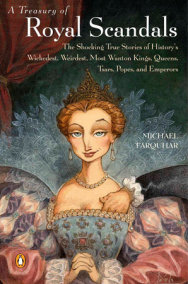

Consequently, Isabella is one of the world's most historically controversial rulers, both adored and demonized.The demonizing part is fairly easy.

Moreover, the conquest of the New World is seen differently by Europeans and Native Americans, and by their descendants. Spanish history has been systematically distorted by propagandists, in a process that is known as the Black Legend, and the era of Muslim control has been painted in an inaccurately rosy hue. Some false information about her has circulated widely. Catholics see her one way Protestants, Muslims, and Jews see her very differently.

“Queen Isabella's life is a Rorschach test for her biographers,” she spiritedly but of course incorrectly writes,Everyone brings a point of view, an internal bias, to the subject of her life.

She was more curious than Ferdinand about the new learning, but she sought it not to surrender to its magic but to use it in the work she had to do … unlike Ferdinand, she was restless, not out of simple itch for power, but because God's work is never done and it is laid upon the king to do God's work.”“Castile,” he added, “was not a prize but a sword.”It's an evocative but not particularly attractive picture, and Kirstin Downey, in her very engaging new book Isabella: The Warrior Queen, seems only sketchily tempted to quarrel with it. “Isabella,” Mattingly wrote, “though she did work for the future, belonged, like Castile, to the past. Talese/Doubleday, 2014When writing his great biography of Catherine of Aragon back in 1941, Garrett Mattingly spared a moment to talk about her illustrious mother, Isabella of Castile, who'd joined with Ferdinand of Aragon to drive the Moors out of Spain and “reconquer” it for the Catholic faith. Isabella: The Warrior Queenby Kirstin DowneyNan A.


 0 kommentar(er)
0 kommentar(er)
